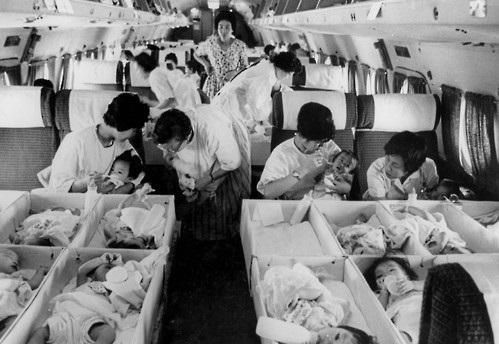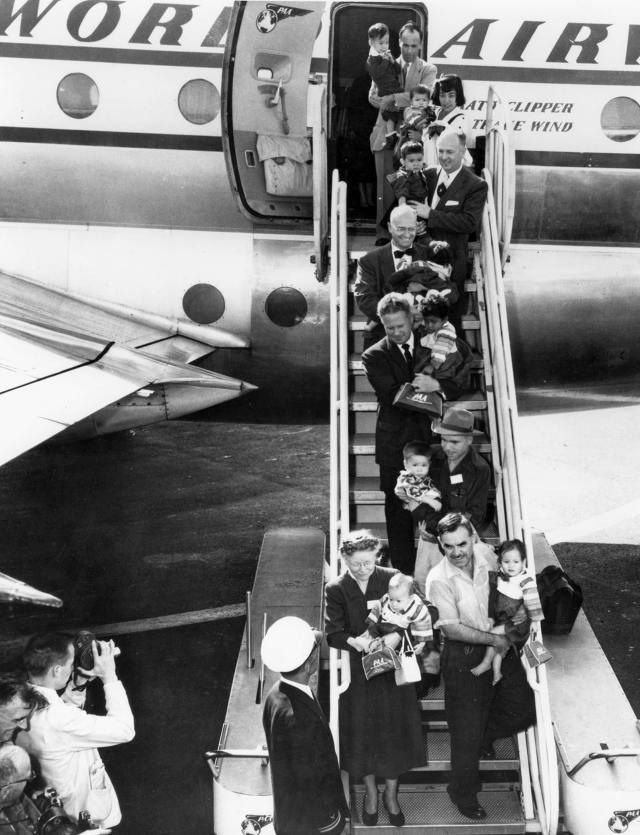In just a few days, South Korea will officially end its decades-long practice of allowing private agencies to handle adoptions and usher in a new era where the state takes primary responsibility for the process, emphasizing public oversight and children’s rights protection.
This shift is more than a bureaucratic change. It represents a historical reckoning.
For over 70 years, beginning after the Korean War, South Korea sent more than 170,000 children overseas for adoption. Some experts estimate this number could be closer to 250,000 when including unofficial records. This made Korea one of the world’s leading “exporters” of children for adoption.
Under the new system, domestic and international adoptions will be regulated separately by two new laws: the Special Act on Domestic Adoption and the Act on Intercountry Adoption. Both laws, passed by the National Assembly in 2023, take effect this Saturday. These changes make the Ministry of Health and Welfare the primary authority on adoption policy, while local governments and the National Center for the Rights of the Child (NCRC) will directly oversee procedures.
“Starting July 19, the state, local governments, and the NCRC will take over the responsibilities previously handled by private adoption agencies,” the NCRC stated in a written response. “All procedures will prioritize the child’s best interests, as outlined in the Hague Adoption Convention.”
What’s changing
The reforms reorganize how adoptions are managed from start to finish, both domestically and internationally.
For domestic adoptions, local governments will identify and protect children in need of adoption before placement. Prospective adoptive parents will apply through the NCRC, which will assign certified agencies to conduct family counseling and home studies.
The Ministry of Health and Welfare’s adoption policy committee will review and approve child-parent matches, with the NCRC serving as its secretariat. Courts will continue to issue final adoption approvals and now have the authority to authorize temporary custody before final approval to support early bonding.
For international adoptions, the state will act as the official “central authority,” overseeing both outbound (Korean children abroad) and inbound (overseas children to Korea) adoptions. The Ministry of Health and Welfare will negotiate procedures with other countries and monitor post-adoption welfare.
Certified agencies will conduct screening and monitoring, while courts will finalize placements.
The law now also mandates children’s participation. Courts must consider adoptees’ views regardless of age, a change from the previous threshold of 13 years old.

“I think it’s great that the government is taking over all those files,” said one adoptee who was sent to a European country as a child and requested anonymity. “But it’s not just about the files. It’s about who we are. These documents are the only legacy we have from Korea.”
For many adoptees, their adoption records—sometimes just a handwritten note or an intake form from decades ago—are the only remaining link to their birth families and origins. The nationalization of adoption means these records are now being transferred from private agencies to the NCRC. However, some say the process has been opaque and confusing.
“There’s real chaos in the adoptee community right now,” she said. “We don’t know what’s happening with the file transfer. Are we sure they’re really moving everything? Are they discarding anything along the way? That’s what we’re afraid of.”
“It’s not just a document. It’s our life. It’s our only hope of finding out who we were,” she emphasized.
Access to these files is also becoming a growing concern. During the transition, adoptees have faced delays and uncertainty.
“For the past few months, we haven’t been able to access anything. Not from the agencies, not from the NCRC,” she said. “They need time to archive and organize the materials, and I understand that. But we need to be kept informed about what’s happening.”
For her, the hope is that increased public awareness, stronger support systems, and more inclusive attitudes will lead to a future where children in need are embraced within Korean society.
“Korean society should see us as assets, not discriminate against us by asking, ‘Why don’t you speak Korean?'” she added. “We don’t need pity. We want to hear how Korea is proud of us, how much they want us here, and how much they welcome us.”
Challenges ahead
The NCRC requested 2.4 billion KRW (approximately 1.8 million USD) this year to establish proper storage facilities, but only 1.78 billion KRW (about 1.34 million USD) was approved. A temporary archive has been controversially set up in a former logistics warehouse near Goyang’s Jichuk Station.
“It’s distressing to hear that adoptees’ documents, these irreplaceable pieces of their identity, are sitting in a remote warehouse with poor transportation access,” said Hellen Noh, professor emeritus of social welfare at Soongsil University.
The government has pledged to build a permanent adoption archive in the future, but no timeline has been announced. Meanwhile, access to records remains heavily restricted.
Under current law, adoptees can only obtain personal information about birth parents if the parents are deceased and the request meets a narrowly defined medical or legal threshold.
A constitutional review is currently underway to determine whether such limits violate adoptees’ right to know their origins.
‘Adoption must be the last resort’
For Professor Noh, the deeper issue lies not in how well the adoption system functions but in how little is done to prevent the need for adoption in the first place. “Adoption is not the solution we should be striving for,” she said. “We need to create a society where every family, regardless of its form, has the support to raise their own children.”
She pointed to the legacy of coercion and profit in South Korea’s international adoption system. “Too many children were sent abroad not because it was best for them, but because it sustained institutions and generated revenue,” she said. “That must never happen again.”
She also highlighted the necessity for support services for struggling families, including single parents, disabled caregivers, and low-income households, to prevent children from being separated due to poverty or stigma.
“If a child can grow up safely and lovingly in their birth family, that’s what should happen,” she said. “Only when that is truly impossible should we consider adoption.”
South Korea must also confront its social biases, she added. “When a single mother wants to raise her child, she’s often labeled selfish. There’s no celebration, only shame. That has to change.”
The shift to public adoption coincides with South Korea’s long-delayed ratification of the Hague Convention on Intercountry Adoption, which is expected to take effect in late October.
The convention, adopted globally in 1993, aims to prevent child trafficking and ensure ethical standards in international adoptions. Korea joined the treaty in 2013 but failed to ratify it due to misalignment with domestic law, a gap that the 2023 legislation is now addressing.
Still, the road ahead remains uncertain. Many of the reforms will require further legislative action and budgetary support from the new administration following the June 3 presidential election.










Most Commented